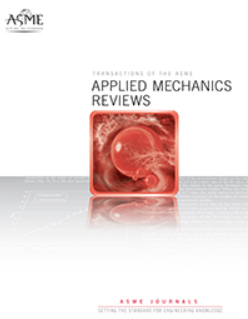生物医学流体中无系留光驱动微型机器人的设计与制造
IF 16.1
1区 工程技术
Q1 MECHANICS
引用次数: 2
摘要
微型无绳移动机器人能够在复杂的生理环境中执行特殊任务,从而改善生物医学研究。光控无线微型机器人由于其导航精度和在生活环境中以非侵入性方式进行操作的潜力,正成为人们感兴趣的中心。这种开创性的光工程微型机器人目前正处于动物试验的早期阶段。要将它们应用于人类的治疗应用,如靶向药物输送、癌细胞诊断、组织工程等,还有很长的路要走。光驱动微型机器人的设计是具有挑战性的部分之一,以及生物相容性和体内应用的精度控制。光激活微型机器人的最新进展揭示了一些创新的设计概念。在这项研究中,我们提出了一个不同方面的框架,并对下一代光控微型机器人的潜在设计进行了比较分析。利用流体-结构相互作用的数值模拟,解决了微型机器人的限制设计元素。我们设想,由于所描述的设计考虑,这项研究最终将促进机器人应用与现实世界的集成。本文章由计算机程序翻译,如有差异,请以英文原文为准。
Design and Fabrication of Untethered Light-Actuated Microbots in Fluid for Biomedical Applications
Untethered mobile robots at the micro-scale have the ability to improve biomedical research by performing specialized tasks inside complex physiological environments. Light-controlled wireless microbots are becoming the center of interest thanks to their accuracy in navigation and potential to carry out operations in a non-invasive manner inside living environments. The pioneering light-engineered microbots are currently in the early stage of animal trials. There is a long way ahead before they can be employed in humans for therapeutic applications such as targeted drug delivery, cancer cell diagnosis, tissue engineering, etc. The design of light-actuated microbots is one of the challenging parts along with the biocompatibility and precision control for in vivo applications. Recent progress in light-activated microbots has revealed a few innovative design concepts. In this study, we presented a framework on the different aspects with a comparative analysis of potential designs for the next generation of light-controlled microbots. Utilizing numerical simulations of fluid-structure interactions, limiting design elements of the microbots are addressed. We envision that this study will eventually facilitate the integration of robotic applications into the real world owing to the described design considerations.
求助全文
通过发布文献求助,成功后即可免费获取论文全文。
去求助
来源期刊
CiteScore
28.20
自引率
0.70%
发文量
13
审稿时长
>12 weeks
期刊介绍:
Applied Mechanics Reviews (AMR) is an international review journal that serves as a premier venue for dissemination of material across all subdisciplines of applied mechanics and engineering science, including fluid and solid mechanics, heat transfer, dynamics and vibration, and applications.AMR provides an archival repository for state-of-the-art and retrospective survey articles and reviews of research areas and curricular developments. The journal invites commentary on research and education policy in different countries. The journal also invites original tutorial and educational material in applied mechanics targeting non-specialist audiences, including undergraduate and K-12 students.

 求助内容:
求助内容: 应助结果提醒方式:
应助结果提醒方式:


